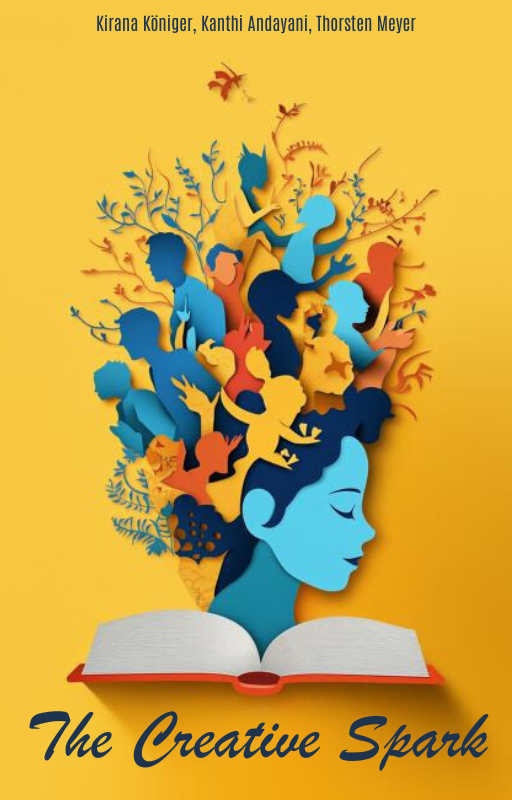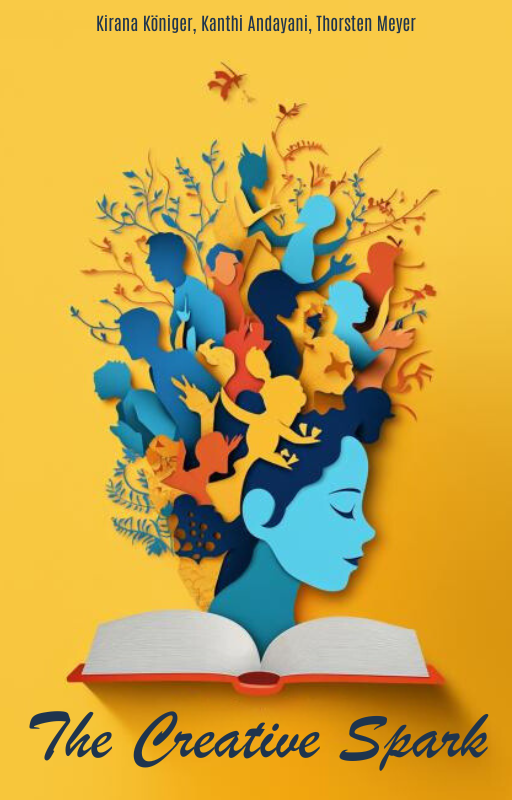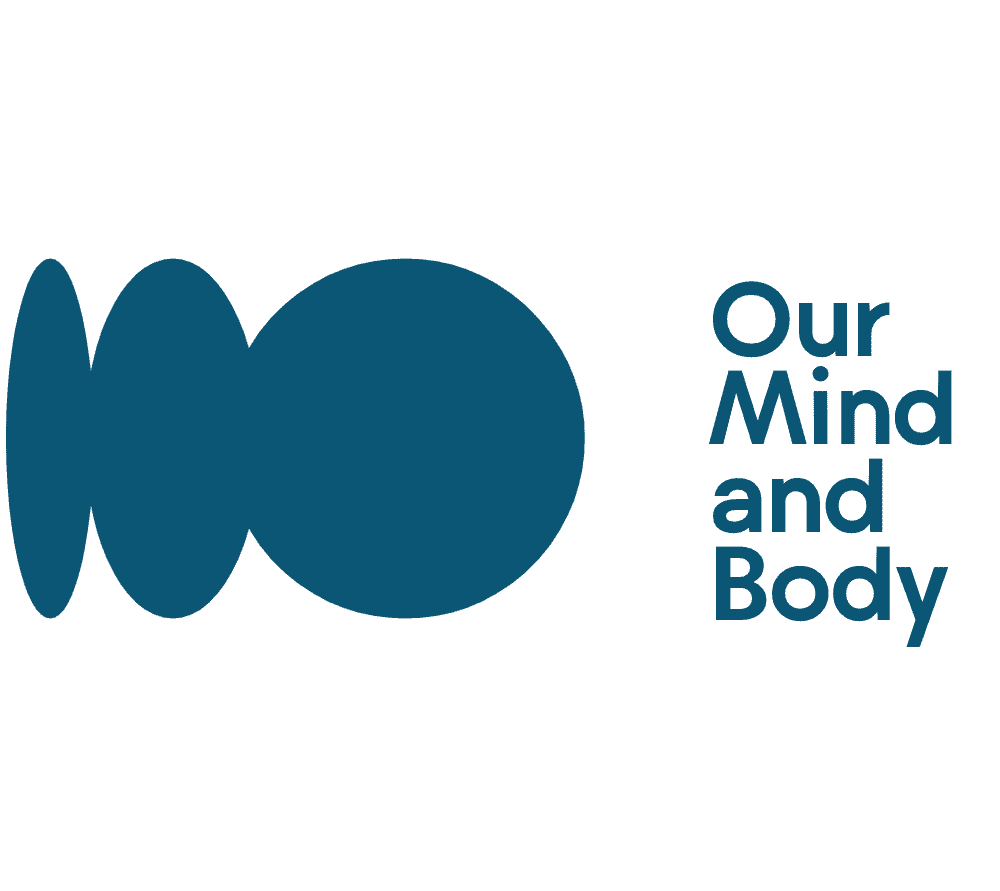Personal Growth
The Power Of Spiritual Authority: Guiding Faithful, Inspiring Growth

Envision a luminous guide leading us out of obscurity, offering enlightenment and motivation. Such is the influence of spiritual leadership.
It transcends social status and formal education, emanating from religious figures, texts, and institutions. As individuals, we are drawn to this authority, seeking guidance, support, and a sense of belonging.
In this article, we explore the profound impact of spiritual authority on our lives, its sources, responsibilities, and the transformative potential it holds.
Join me as we delve into the power of spiritual authority, guiding the faithful and inspiring growth.
Key Takeaways
- Spiritual authority is the leadership and guidance provided by religious figures, texts, and institutions to followers, and it plays a significant role in providing direction and clarity on religious beliefs and practices.
- Spiritual authority can come from God, religious texts, religious titles, personal experiences, or divine revelations, and it is earned through personal growth, learning, and service.
- The role of spiritual authority includes leading the faithful, providing guidance and counsel, and embodying virtues such as compassion, humility, and integrity.
- The challenges to spiritual authority include conflicting interpretations of religious texts, controversies and scandals within religious institutions, the rise of secularism and skepticism, and the potential for misuse or manipulation of authority. However, spiritual authority is important in faith communities as it provides a sense of direction and clarity, guides individuals towards a deeper understanding of spirituality, and establishes trust and credibility among the faithful. It also has an impact on individuals, shaping their moral values, ethical decision-making, and sense of belonging and community. Ultimately, accepting spiritual authority is a personal choice that determines the level of influence it has on an individual’s life.
Definition and Sources
I understand that the definition and sources of spiritual authority vary depending on religion, but it generally involves leadership and guidance provided by religious figures, texts, and institutions to followers. Understanding divine authority is essential in comprehending the power and influence that spiritual leaders hold over their faithful.
It is through their role as intermediaries between the divine and the followers that they are granted this authority. Exploring sacred sources, such as religious texts, provides the foundation and guide for belief systems, worship, and moral values. These texts convey divine messages from a supreme entity and offer guidance on how to live, acceptable actions, and spiritual growth.
Trust in these sources and the credibility of the leaders who adhere to them are crucial in establishing and maintaining spiritual authority.
Role and Responsibilities
Leading the faithful involves providing guidance, advice, and motivation, while also demonstrating knowledge of scripture and theology. As spiritual authorities, we have a crucial role in guiding individuals towards a deeper understanding of spirituality and assisting them in overcoming life’s obstacles. We serve as intermediaries, breaking down complex theological conundrums and interpreting scripture to offer personalized counsel. By selecting credible leaders who have genuine interests at heart, we establish trust and credibility among the faithful.
In today’s ever-changing society, spiritual authority plays a vital role in conflict resolution. Our guidance and teachings can help individuals navigate through conflicts and find peaceful resolutions. By emphasizing virtues such as compassion, humility, and integrity, we inspire others to approach conflicts with a mindset of understanding and forgiveness. Our authority provides a sense of direction and clarity, offering solutions that align with spiritual principles and moral values.
Through our role as spiritual authorities, we have the power to create positive change, foster unity, and promote harmony within our communities.
Authority from God
Intermediaries between followers and the divine, religious leaders are bestowed with authority from God. This divine bestowal grants them the trust and credibility needed to guide and lead their faithful followers.
Through their connection to the divine, religious leaders become the vessels through which God communicates with and influences the lives of their followers. This authority is not to be taken lightly, as it requires adherence to doctrine, moral principles, humility, and unwavering faithfulness.
By embodying these qualities, religious leaders inspire trust and credibility among their peers and followers alike. This trust and credibility are essential in establishing a strong foundation for the guidance and teachings provided by spiritual authority.
It is through this divine authority that religious leaders are able to effectively lead, counsel, and inspire growth within their faith communities.
Authority from Religious Texts
Religious texts hold the ultimate authority in guiding believers’ understanding of doctrine, moral values, and acceptable actions. These sacred writings serve as a foundation and guide for belief systems, worship, and moral values.
Through the interpretation of scripture, spiritual authority is derived, providing believers with a compass to navigate their spiritual journey. The guidance offered by religious texts helps individuals make sense of complex theological conundrums and provides a framework for ethical decision-making.
The messages conveyed in these texts offer invaluable insights into how to live a righteous and fulfilling life. By studying and adhering to the teachings within religious texts, individuals can align themselves with divine principles and foster spiritual growth.
Thus, the authority bestowed upon religious texts plays a crucial role in shaping the moral fabric of believers’ lives and guiding them towards a path of righteousness.
Qualities of Effective Spiritual Authority
I believe that humility, wisdom, discernment, and servant leadership are essential qualities for effective spiritual authority.
Humility allows spiritual leaders to recognize their own limitations and to approach their role with a sense of openness and teachability.
Wisdom enables them to apply their knowledge and understanding of religious teachings in a way that is relevant and meaningful to their followers.
Discernment helps spiritual leaders navigate complex theological questions and guide their followers towards truth and understanding.
Lastly, servant leadership emphasizes the importance of selflessness and putting the needs of others before their own.
These qualities are crucial in providing direction and clarity on religious beliefs and practices.
By embodying these qualities, spiritual leaders inspire trust and credibility among their followers. They are able to guide individuals towards a deeper understanding of spirituality and assist them in overcoming life’s obstacles.
Through their humility, wisdom, discernment, and servant leadership, effective spiritual authorities inspire growth and transformation within their communities.
Guidance and Counsel
As a spiritual leader, my role involves providing guidance and counsel to individuals on their spiritual journey. I understand the importance of offering support and direction to those seeking answers and clarity in their faith. One of the key aspects of my role is breaking down complex theological conundrums and helping individuals navigate the intricate aspects of their belief system. Through interpretation of scripture and personalized counsel, I aim to assist individuals in understanding and applying the teachings of their religion to their daily lives.
To better illustrate the significance of guidance and counsel in spiritual leadership, I have created a table highlighting the role of spiritual leaders in providing guidance and counsel, as well as their ability to break down complex theological conundrums:
| Role of Spiritual Leaders | Breaking down Complex Theological Conundrums |
|---|---|
| Provide guidance and advice to individuals | Offer explanations for intricate theological matters |
| Help individuals navigate their spiritual journey | Simplify complex doctrines and beliefs |
| Interpret scripture and offer personalized counsel | Provide insights into the practical application of religious teachings |
| Select credible leaders who have genuine interests at heart | Resolve moral and ethical dilemmas through religious principles |
By fulfilling these responsibilities, I aim to empower individuals to deepen their spiritual understanding and find guidance and support on their journey of faith.
Challenges to Spiritual Authority
Addressing controversies and restoring trust are crucial aspects of navigating the challenges to spiritual authority. In today’s world, conflicting interpretations of religious texts and the occurrence of controversies and scandals within religious institutions have led to skepticism and a decline in trust.
As a spiritual authority, it is essential to acknowledge and address these issues head-on. Transparency, accountability, and a commitment to integrity are vital in restoring faith in the institution and its leaders.
By actively engaging with the concerns and doubts of the faithful, and promoting open dialogue and discussion, spiritual authorities can create an environment where trust can be rebuilt. It is through humility, compassion, and a willingness to learn from past mistakes that spiritual authorities can regain the credibility needed to guide and inspire growth among the faithful.
Importance in Faith Communities
Establishing trust and credibility within faith communities is crucial for providing a sense of direction and clarity on religious beliefs and practices. Spiritual authority plays a significant role in creating unity and strengthening the community.
By embodying virtues such as compassion, humility, and integrity, spiritual leaders inspire and motivate followers to live fulfilling lives. They guide individuals towards a deeper understanding of spirituality, helping them overcome life’s obstacles.
Through their guidance and support, spiritual authority fosters a sense of belonging and community, bringing people together in shared beliefs and values. This unity strengthens the community and allows for collective growth and transformation.
By establishing trust and credibility, spiritual authority becomes a source of inspiration and motivation, offering guidance and support in personal and spiritual growth. It is through the power of spiritual authority that faithful individuals find meaning, purpose, and a sense of belonging within their faith communities.
Impact on Individuals
Coming from the previous discussion on the importance of spiritual authority in faith communities, it is now crucial to delve into the impact it has on individuals.
As a person who has experienced the power of spiritual authority firsthand, I can attest to its ability to bring about personal transformation and help in finding meaning.
Spiritual authority serves as a guiding force that directs individuals towards a deeper understanding of themselves and their purpose in life. Through the wisdom and guidance of spiritual leaders, we are able to navigate the complexities of our spiritual journey with clarity and insight.
It is through this process that we find meaning, as our beliefs and values align with the teachings of our faith. The power of spiritual authority lies in its ability to inspire, motivate, and shape our moral values, leading us to live more fulfilling lives.
Personal Choice and Acceptance
When I reflect on my personal journey, it is clear that my acceptance of spiritual authority has played a pivotal role in shaping my beliefs and values.
Critically evaluating the sources of spiritual authority has allowed me to discern which teachings align with my own inner truth and resonate with my soul.
This process has led to personal growth and transformation, as I have embraced the guidance and wisdom offered by spiritual leaders who genuinely have the best interests of their followers at heart.
By accepting spiritual authority, I have opened myself to the possibility of deepening my spirituality and finding meaning and purpose in life.
It has allowed me to navigate the complexities of moral decision-making and has fostered a sense of belonging and community.
The power of spiritual authority lies in its ability to inspire growth and guide the faithful towards a more fulfilling and enlightened existence.
Balancing Personal Beliefs
Finding balance and navigating conflicts are essential aspects of navigating the realm of spiritual authority. As individuals, we possess our own set of beliefs and values that shape our understanding of the world and our place in it.
However, when faced with the guidance and teachings of spiritual leaders, we often find ourselves grappling with the need to reconcile our personal beliefs with the authority bestowed upon them. It is crucial to strike a delicate balance between honoring our individuality and respecting the wisdom and insights offered by spiritual authority.
This requires a willingness to critically evaluate our beliefs, challenge our assumptions, and engage in open dialogue with our spiritual leaders. By doing so, we can navigate the conflicts that arise and find a harmonious integration of our personal beliefs and the guidance provided by spiritual authority.
Potential for Growth and Transformation
Experiencing the potential for growth and transformation within oneself is truly empowering. Spiritual growth and personal development are intricately connected to accepting and embracing spiritual authority.
Through divine guidance, we can embark on a journey of self-discovery and transformation. Spiritual authority provides us with the tools and teachings necessary to navigate life’s challenges, cultivate inner peace, and develop a deeper understanding of ourselves and our purpose.
It is through the guidance of spiritual leaders that we can tap into our true potential and unlock hidden strengths. By surrendering to the wisdom and teachings of spiritual authority, we open ourselves up to a realm of possibilities for growth and transformation.
It is through this process that we can truly evolve and become the best version of ourselves.
Frequently Asked Questions
How does spiritual authority differ from other forms of authority?
Spiritual authority differs from other forms of authority in that it is derived from a divine source, such as God or religious texts. Its significance lies in providing guidance, support, and a sense of direction in religious beliefs and practices.
Can spiritual authority be obtained without a connection to a specific religion?
Secular spirituality allows for non-religious guidance, but spiritual authority typically requires a connection to a specific religion. It is through this connection that one can access the wisdom, teachings, and traditions that provide the foundation for spiritual authority.
How do religious leaders maintain their authority in the face of controversy or scandal?
Religious leaders maintain their authority in the face of controversy or scandal by actively addressing the issues, taking responsibility, and demonstrating genuine remorse. Rebuilding trust and maintaining credibility are crucial through transparent communication and consistent ethical behavior.
Is it possible for individuals to have their own personal spiritual authority?
It is possible for individuals to have their own personal spiritual authority, as personal empowerment and inner guidance play a significant role in shaping one’s spiritual journey and beliefs.
What role does spiritual authority play in promoting social justice and activism?
Spiritual authority plays a crucial role in promoting social justice and activism by inspiring and guiding individuals to work towards societal change. Spiritual leaders have the power to mobilize communities, challenge injustices, and advocate for equality and compassion at the intersection of spirituality and social justice.
Conclusion
In the realm of spirituality, the power of authority is a beacon of light that illuminates our path, guiding us through the labyrinth of life. Like a compass, it points us in the right direction, giving us clarity amidst the chaos.
It is a force that nurtures growth within us, like a gentle rain that quenches the thirst of our souls. This authority, derived from divine sources, holds the key to unlocking our potential and transforming us into the best versions of ourselves.
It is through accepting and embracing this authority that we embark on a journey of self-discovery and spiritual enlightenment. As we navigate the challenges and complexities of life, the wisdom and guidance bestowed upon us by spiritual leaders and texts become our guiding stars, leading us to a place of peace and fulfillment.
However, it is essential that we strike a delicate balance between accepting spiritual authority and maintaining our own personal beliefs. We must critically engage with the teachings and interpretations, allowing them to enrich our understanding without stifling our individuality.
In this dance between faith and autonomy, we find the potential for growth and transformation, as we navigate the intricate tapestry of spirituality. So, let us embrace the power of spiritual authority, for it holds the key to unlocking our true potential and guiding us towards a life of purpose and meaning.
Meet Kalinda, the passionate and visionary Editor-in-Chief of OurMindAndBody.com. Kalinda is a beacon of light in the realm of holistic well-being, and her mission is to positively impact the lives of others by inspiring them to embrace a healthier and more fulfilling lifestyle.
With a deep-rooted love for meditation, yoga, and spirituality, Kalinda’s journey toward self-discovery and personal growth started at a young age. She found solace and strength in these practices, which not only helped her cope with the challenges of life but also provided her with a profound sense of purpose. Eager to share the transformative power of these ancient disciplines, Kalinda embarked on a path to spread awareness and understanding.
Personal Growth
Book Review: “The Creative Spark: Unleashing Your Inner Artist”

Rediscovering Creativity in the Digital Age
In a world where digital distractions often overshadow our creative instincts, “The Creative Spark: Unleashing Your Inner Artist” emerges as a timely and empowering guide. Authored by Kirana Königer, Kanthi Andayani, and Thorsten Meyer, this book provides a comprehensive and accessible approach to reigniting the creative flame within each of us.
A Global Tapestry of Creative Wisdom
The authors draw on their diverse backgrounds—Indonesian roots, European influences, and global experiences—to weave a rich tapestry of creative insights. This multicultural perspective is not just a backdrop but the foundation of the book’s philosophy, which sees creativity as a universal language that transcends cultural and geographical boundaries.

Expanding the Boundaries of Creativity
“The Creative Spark” encourages readers to rethink creativity, moving beyond the traditional confines of the arts. The authors argue convincingly that creativity is a fundamental life skill, essential for problem-solving, personal growth, and professional success across all domains.
The Science of Creativity
Anchored in scientific research, the book explores:
- The neurological foundations of creativity
- The roles of different brain regions in creative thinking
- The impact of neuroplasticity on the development of creative skills
- How environment and lifestyle choices affect creative potential
Practical Exercises for Creative Development
Each chapter offers a variety of hands-on exercises designed to nurture creativity across different fields:
- Writing prompts to spark the imagination of aspiring authors
- Visual challenges for artists and designers
- Culinary experiments for food enthusiasts
- Mindfulness practices to enhance creative awareness
- Cross-disciplinary projects that blend multiple forms of artistic expression
Overcoming Creative Challenges
The book provides practical strategies for overcoming common obstacles in the creative process, including:
- Breaking through creative blocks and periods of stagnation
- Overcoming self-doubt and imposter syndrome
- Managing perfectionism and the fear of failure
- Balancing creative pursuits with everyday responsibilities
Creativity in the Digital Era
The authors thoughtfully examine how technology can both enhance and hinder creativity, discussing:
- The potential of digital tools to support creative processes
- Balancing digital and analog approaches to creativity
- Leveraging social media to share and promote creative work
- Addressing ethical considerations in the age of AI-generated art
A Journey of Self-Discovery
Throughout the book, the authors share personal stories from their own creative journeys, adding depth and relatability to the content. Readers are invited to embark on their own journey of self-discovery, guided by reflective questions and exercises designed to help uncover their unique creative strengths.
Critical Analysis
Strengths:
- A broad and inclusive approach that extends beyond traditional artistic boundaries
- A multicultural perspective offering a wealth of global insights
- A strong scientific foundation combined with practical applications
- An accessible tone that makes creativity approachable for all readers
Considerations:
- The broad scope of topics may be overwhelming for some readers
- Certain cultural references may resonate differently depending on the audience
- Some advanced readers may find familiar concepts, though they are presented with fresh insights
Conclusion: A Guide to Creative Renewal
“The Creative Spark: Unleashing Your Inner Artist” is more than just a guide to artistic expression—it’s a blueprint for living a more imaginative and fulfilling life. By redefining creativity as a core human trait, the authors offer a work that has the potential to transform not just how readers approach art, but how they approach life itself.
Rating: 4.85/5 stars
Highly recommended for its inclusive approach, scientific grounding, and transformative potential, “The Creative Spark” stands out as a valuable resource for anyone looking to reignite their creative passions and embrace a more inspired way of living.
Meet Nadi, the soulful writer and explorer of inner realms who graces OurMindAndBody.com with her profound insights and heartfelt wisdom. With a profound passion for mindfulness, meditation, and spiritual growth, Nadi weaves words that touch the hearts and minds of readers, leaving a lasting impact on their well-being journey.
Rooted in a background of philosophy and psychology, Nadi’s curiosity about the human mind and the mysteries of the soul led her on a transformative path of self-discovery. Drawn to the transformative power of mindfulness and meditation, she embarked on a quest to understand the intricacies of these practices, not only for her own growth but also to inspire others to embark on their own inner journeys.
Personal Growth
Clearing Brain Fog: Top Foods For Mental Clarity

Experiencing mental fog is like navigating through a dense forest without a map. It can be frustrating, exhausting, and hinder your ability to think clearly and be productive.
But fear not, because there is a way to clear the fog and regain mental clarity. By incorporating certain foods into your diet, you can nourish your brain and improve cognitive function.
In this article, we will explore the top foods that can help clear brain fog and enhance mental clarity.
Key Takeaways
- Brain fog is a state of mental confusion and exhaustion that hinders productivity and quality of life.
- Unhealthy eating habits cause inflammation and cognitive decline, while nutrient-rich foods repair cells and promote brain function.
- Blueberries, fatty fish, nuts, dark chocolate, leafy greens, turmeric, and green tea are foods that can improve brain health and clarity.
- A balanced diet with brain fog-fighting foods is crucial for mental clarity, and integrating these foods into your diet can help improve cognitive function and memory recall.
Top Brain Fog-Fighting Foods
I love incorporating these brain fog-fighting foods into my diet to improve my mental clarity and overall brain health.
Blueberries are a fantastic choice as they are rich in antioxidants, which prevent oxidative stress and inflammation in the brain. They also enhance memory function, making them a great addition to my daily routine.
Fatty fish, like salmon and sardines, are another favorite of mine. They contain omega-3 fatty acids that improve brain health, strengthen memory, and enhance cognitive function.
Nuts are a convenient and tasty option as they contain healthy fats, protein, and fiber, all of which contribute to improved cognitive functioning.
Dark chocolate, in moderation, is a delicious way to protect against oxidative damage and improve cognitive function with its flavonoids.
Leafy greens, such as spinach and kale, are nutritional powerhouses that provide vitamins and antioxidants to protect the brain.
Lastly, turmeric, with its anti-inflammatory and antioxidant properties, is excellent for improving memory function.
Incorporating these brain fog-fighting foods into my diet has made a noticeable difference in my mental clarity and overall brain health.
Importance of Nutrients
Nutrients from a balanced diet are vital for promoting brain health and enhancing cognitive function and memory recall. When it comes to clearing brain fog and improving mental clarity, certain nutrients play a key role.
Here are three essential nutrients that can help boost your brainpower:
-
Omega-3 Fatty Acids: These healthy fats found in fatty fish like salmon and sardines are crucial for brain health. They have been shown to improve memory and cognitive function, making them an excellent choice for combating brain fog.
-
Antioxidants: Foods rich in antioxidants, such as blueberries, protect the brain from oxidative stress and inflammation. They also enhance memory function, helping to clear mental fog.
-
Vitamin E: This powerful antioxidant found in nuts like almonds and sunflower seeds has been linked to improved cognitive functioning. Including these nutrient-rich foods in your diet can provide the essential vitamins and minerals needed for optimal brain health and mental clarity.
Gut Health and Cognitive Function
Improving gut health is crucial for enhancing cognitive function and promoting optimal brain function. The gut microbiome, which consists of trillions of microorganisms, plays a significant role in our overall health, including our mental well-being. Research has shown that a healthy gut contributes to emotional stability and cognitive capacity.
When the gut is filled with beneficial bacteria, it reduces anxiety and depression levels, leading to improved mental clarity. Incorporating whole foods into our diet is key to maintaining a healthy gut. Foods like fruits, vegetables, and whole grains are rich in fiber and essential nutrients that support gut health. Additionally, probiotic-rich foods like yogurt and kimchi can replenish the gut with beneficial bacteria.
By prioritizing gut health through a balanced diet, we can boost our cognitive function and experience greater mental clarity.
Effects of Diet on Sleep
Eating a balanced diet with nutrient-rich foods can positively impact sleep quality and duration. Poor diet choices, such as consuming excessive sugar and processed foods, can disrupt our natural sleeping habits, leaving us feeling fatigued and decreasing our cognitive function.
On the other hand, a diet that includes healthy fats and complex carbohydrates can improve our sleep. When we have sound slumber, we experience enhanced mental clarity and increased energy levels throughout the day.
Incorporating foods like blueberries, fatty fish, nuts, dark chocolate, leafy greens, turmeric, and green tea into our meals can help promote a restful night’s sleep. So, by making conscious choices about what we eat, we can improve both our diet and our sleep, leading to better mental clarity and overall well-being.
Blueberries: Memory Enhancer
Indulging in a handful of juicy blueberries is like unleashing a burst of sunshine in my mind. Their antioxidants work wonders in boosting my memory function. Blueberries are packed with antioxidants that help prevent oxidative stress and inflammation in the brain, ultimately enhancing memory function.
These little berries are also rich in flavonoids, which have been shown to improve cognitive function and protect against oxidative damage. Not only are blueberries delicious, but they are also a practical choice for improving mental clarity.
Whether enjoyed by themselves, added to a smoothie, or sprinkled on top of yogurt, incorporating blueberries into my diet is an easy and tasty way to support my brain health.
So, whenever I feel the fog rolling in, I reach for a handful of blueberries to give my memory a boost and clear away the mental haze.
Fatty Fish: Cognitive Booster
When I include fatty fish in my diet, I notice a significant boost in my cognitive abilities.
Fatty fish, such as salmon, trout, and sardines, are rich in omega-3 fatty acids, which are essential for brain health. These fatty acids help improve memory, enhance cognitive function, and even protect against age-related cognitive decline.
Research has shown that a regular intake of omega-3 fatty acids can improve attention, focus, and overall mental clarity. Additionally, the anti-inflammatory properties of omega-3s can reduce brain fog and promote a healthy brain.
Incorporating fatty fish into my meals not only provides me with a delicious and satisfying option but also supports my brain health and keeps my mind sharp.
Nuts: Brain Function Improvement
Including nuts in my diet has significantly improved my brain function and cognitive abilities. Nuts, such as almonds, walnuts, and cashews, are packed with healthy fats, protein, and fiber, all of which are essential for optimal brain functioning.
The healthy fats in nuts, including omega-3 fatty acids, help nourish the brain and support cognitive processes like memory and learning. Additionally, the protein in nuts provides a steady supply of amino acids that are necessary for neurotransmitter production, which influences mood and cognitive function.
The fiber in nuts helps regulate blood sugar levels, preventing energy crashes and promoting sustained mental clarity. I have found that incorporating a handful of nuts into my daily routine not only satisfies my snack cravings, but also boosts my brain power and enhances my overall cognitive performance.
Dark Chocolate: Cognitive Protection
Dark chocolate has been an essential part of my diet for its cognitive protection benefits. Not only is it delicious, but it also contains flavonoids that improve cognitive function and protect against oxidative damage. Flavonoids have been shown to enhance memory and attention, making dark chocolate a great choice for clearing brain fog and promoting mental clarity.
Studies have found that the antioxidants in dark chocolate can increase blood flow to the brain, which improves cognitive function. Additionally, dark chocolate has been linked to a reduction in inflammation in the body, including the brain, which can contribute to better mental health.
When choosing dark chocolate, aim for varieties with a high percentage of cocoa (70% or higher) to maximize the benefits. Remember to enjoy it in moderation as part of a balanced diet, as it is still high in calories.
So indulge in a small piece of dark chocolate to give your brain a boost and improve your mental clarity.
Frequently Asked Questions
How does brain fog affect productivity and quality of life?
Brain fog, like a dense fog over a city, impairs focus, memory, and energy levels, hindering productivity and diminishing quality of life. It’s crucial to address brain fog through a balanced diet and lifestyle choices for improved mental clarity.
Are there any other factors besides unhealthy eating habits that can cause brain fog?
Yes, besides unhealthy eating habits, other factors such as lack of sleep, chronic stress, hormonal imbalances, certain medications, and underlying medical conditions can also contribute to brain fog. It’s important to address these factors for improved mental clarity.
What are some nutrients that are essential for brain health and cognitive function?
Some essential nutrients for brain health and cognitive function include antioxidants from blueberries, omega-3 fatty acids from fatty fish, healthy fats from nuts, flavonoids from dark chocolate, vitamins from leafy greens, and anti-inflammatory properties from turmeric.
How does the gut microbiome affect emotional stability and cognitive capacity?
The gut microbiome plays a crucial role in emotional stability and cognitive capacity. Healthy gut organisms reduce anxiety and depression levels, while an imbalance can lead to mental health issues. Taking care of your gut health is essential for overall well-being.
Can a balanced diet with brain fog-fighting foods improve sleep quality?
Yes, a balanced diet with brain fog-fighting foods can improve sleep quality. A diet rich in healthy fats and complex carbs promotes sound slumber, leading to enhanced mental clarity and energy levels.
Conclusion
In conclusion, our brains deserve the best fuel to function at their peak. Just like a well-oiled machine, we can clear away the brain fog and unlock mental clarity with the power of food.
These brain fog-fighting foods are like superheroes, swooping in to save the day. Blueberries, fatty fish, nuts, dark chocolate – each one holds the key to unlocking our cognitive potential.
So let’s nourish our brains, fuel our minds, and banish brain fog for good. The power is in our hands, and on our plates.
Say hello to Cypress, the soulful wordsmith behind the insightful articles at OurMindAndBody.com. Cypress is a gifted writer who weaves words with grace and precision, using language as a powerful tool to inspire, heal, and uplift the spirits of readers.
With a background in literature and a passion for personal growth, Cypress brings a unique perspective to the world of well-being and spirituality. Having experienced the transformative effects of meditation and yoga firsthand, Cypress is deeply connected to the essence of these practices and their potential to enrich lives.
Personal Growth
Smart Investing: Maximizing Returns And Minimizing Risk

Sometimes fate has a funny way of guiding us towards what we really need. By pure chance, you have stumbled upon an article on smart investing – a topic that could potentially change the trajectory of your financial future.
Investing wisely is all about maximizing returns while minimizing risk, and it’s never too early to start. With the right knowledge, tools, and guidance, you can navigate the complex world of investments and make informed decisions that will lead to long-term success.
So, let’s dive in and explore the key principles of smart investing, shall we?
Key Takeaways
- Investing at a young age can lead to significant growth in account balance over time.
- Diversifying investments reduces risk and increases potential returns.
- Regularly monitoring investments and adjusting strategies based on market conditions is important.
- Understanding tax implications and implementing tax-efficient investment strategies can maximize returns.
What is Investing?
Investing is the process of allocating funds into different investment options with the goal of maximizing returns and minimizing risk. It involves carefully selecting investment instruments that have the potential to generate income or appreciate in value over time. By diversifying investments across various asset classes, such as stocks, bonds, and real estate, investors can reduce the risk associated with any single investment.
It is important to understand the merits and demerits of different investment options, as well as their tax implications. Regular monitoring of investments and staying updated on market trends is crucial for informed decision-making. Patience, discipline, and a realistic budget are essential for long-term investment success. Seeking mentorship or taking investment courses can provide valuable guidance in navigating the complex world of investing.
Starting Early
Beginning early in the world of finance is like planting a small seed that has the potential to grow into a mighty oak, providing shade and stability for years to come. When it comes to investing, starting early is crucial for maximizing returns and minimizing risk. Here are three reasons why:
-
Compounding Growth: Investing at a young age allows your money to grow exponentially over time. By starting early, you can take advantage of compounding, where your investments generate returns that are reinvested, leading to even higher returns in the future.
-
Financial Security: Early investments can minimize financial strain and stress in later years. By building a solid investment portfolio early on, you can create a cushion for future expenses, such as buying a house, starting a family, or funding your retirement.
-
Time to Learn and Recover: Starting early gives you ample time to learn about different investment options and strategies. It also provides a buffer to recover from any potential losses. With time on your side, you can take calculated risks, learn from your mistakes, and make informed investment decisions.
By starting early, you can set yourself up for long-term financial success and achieve your financial goals with greater ease.
Weighing Options
When it comes to choosing investment options, I consider the merits and demerits of different instruments before making a decision.
Retirement schemes offer stability but may have limited returns, while stocks provide income through buying and selling shares.
ETFs allow investors to purchase and sell stocks at listed prices, while bonds offer monthly or annual interest as a loan to a government or corporate entity.
Each investment instrument has its own advantages and disadvantages, and it’s important to weigh these factors carefully.
By diversifying investments across different asset classes, including real estate and international markets, I can reduce risk and increase potential returns.
A mix of stocks, bonds, and other assets is advisable for long-term success.
Ultimately, making a wise selection of investment options is crucial for maximizing returns and minimizing risk.
Getting an Account
Knowing where to go and which platforms to use for getting an investment account is crucial for me. With so many options available, it’s important to choose a trustworthy and cost-friendly platform.
One platform that stands out for beginners like me is Sofi Invest. Not only does it provide access to multiple investment opportunities, but it also offers valuable information on different types of investment accounts. This makes it easier for me to make informed decisions based on my financial goals and risk tolerance.
By using an online platform like Sofi Invest, I can easily manage my investments and track their performance. It’s reassuring to know that I have a reliable platform to rely on as I begin my investing journey.
Education and Mentorship
I believe that taking an investment course or finding a mentor would be beneficial for me to gain valuable insights and knowledge in the field of investing. Learning from successful investors can provide me with valuable tips and strategies that can help maximize my returns and minimize risks. Having a realistic budget for my initial investments is crucial, and starting small can be a viable approach. I can also borrow ideas from successful investors in my area of interest to further enhance my investment strategy. To grab the attention of the audience, I have created a table below that highlights the importance of education and mentorship in smart investing:
| Importance of Education and Mentorship |
|---|
| Gain valuable insights and knowledge |
| Learn from successful investors |
| Develop effective investment strategies |
| Minimize risks and maximize returns |
Taking the time to educate myself and seek mentorship will provide a strong foundation for my investment journey. It will equip me with the necessary tools and understanding to make informed decisions and navigate the complex world of investing.
Diversification
Diversifying my investments across different asset classes allows for a more balanced and potentially profitable portfolio. By spreading my investments, I can reduce the risk associated with any single investment and increase my potential returns. Here are four reasons why diversification is important:
-
Risk reduction: Spreading investments across various asset classes such as stocks, bonds, real estate, and international markets helps mitigate the risk associated with any one investment. If one asset class underperforms, the others may still provide positive returns.
-
Potential for higher returns: Different asset classes have varying levels of returns over time. By diversifying, I can take advantage of the potential growth in different sectors and markets, increasing the likelihood of achieving higher overall returns.
-
Protection against market volatility: By having a mix of investments, I can protect myself against market fluctuations. When one asset class experiences a downturn, others may be performing well, providing a cushion against losses.
-
Increased opportunities: Diversification opens up opportunities to invest in different industries, sectors, and geographical regions. This allows me to benefit from global exposure and take advantage of emerging markets or sectors that may offer higher growth potential.
Overall, diversification is a key strategy for maximizing returns and minimizing risk in my investment portfolio.
Understanding Risk and Reward
Understanding the relationship between risk and reward is crucial for making informed investment decisions. When it comes to investing, there is an inherent trade-off between the two.
Higher-risk investments have the potential for higher returns, but they also carry a greater chance of loss. On the other hand, lower-risk investments typically offer more stability but may have limited returns.
Assessing your risk tolerance is important before investing, as everyone’s comfort level with risk varies. By diversifying your investments across different asset classes and spreading your risk, you can both mitigate risk and increase potential returns.
Balancing risk and reward is key for long-term success in investing. Regularly monitoring your investments, staying updated on market trends, and adjusting your strategies accordingly will help you navigate the ever-changing investment landscape.
Seeking professional advice can also provide valuable insights and guidance.
Regular Monitoring
Regularly reviewing investment performance can help investors make informed decisions and take advantage of market opportunities. It is essential to monitor investments regularly to stay updated on market trends and news. By doing so, investors can adjust their investment strategies based on current market conditions.
Regularly reviewing investment performance allows for informed decision-making and helps investors identify any necessary adjustments to their portfolio. Additionally, seeking professional advice for investment monitoring can provide valuable insights and guidance.
Monitoring investments ensures that investors can stay on top of their financial goals and make necessary adjustments to maximize returns and minimize risk. In summary, regular monitoring is a crucial aspect of smart investing, enabling investors to make informed decisions and stay ahead of the market.
Markdown list:
- Stay updated on market trends and news
- Adjust investment strategies based on market conditions
- Seek professional advice for investment monitoring
Long-Term vs Short-Term
Moving on from the importance of regular monitoring, let’s now delve into the comparison between long-term investing and short-term trading.
Long-term investing involves holding investments for an extended period, allowing them to grow and compound over time. It is a more passive approach, suitable for investors looking for steady, consistent returns.
On the other hand, short-term trading involves buying and selling investments quickly to take advantage of short-lived market fluctuations. This approach requires active monitoring and quick decision-making. While short-term trading can potentially yield higher returns, it also comes with increased risk and requires a deeper understanding of market trends.
Both approaches have their advantages and disadvantages, and the choice between them depends on individual goals, risk tolerance, and investment strategy.
Tax Considerations
When it comes to tax considerations in investing, I always consult with a tax professional to ensure I have a clear understanding of the tax implications of different investment options. It is crucial to be aware of the tax treatment of each investment to maximize returns and minimize tax liabilities.
Here are a couple of key points to consider:
-
Different investment options have different tax treatments:
-
Stocks and bonds may be subject to capital gains tax when sold.
-
Dividends from stocks may be taxed at a different rate than interest income from bonds.
-
Retirement accounts such as IRAs or 401(k)s offer tax advantages like tax-deferred growth or tax-free withdrawals, depending on the type.
-
Tax-efficient investment strategies can maximize returns:
-
Utilizing tax-advantaged accounts can help minimize taxes on investment earnings.
-
Tax-loss harvesting, where you sell investments at a loss to offset capital gains, can reduce your overall tax liability.
By understanding the tax implications and implementing tax-efficient strategies, I aim to optimize my investment returns while staying compliant with tax regulations.
Importance of Patience
To achieve long-term investment success, I have learned that patience is a crucial virtue. It is important to resist the temptation of making impulsive decisions based on short-term market fluctuations. Instead, I have found that sticking to a well-defined investment plan and maintaining a consistent approach is key.
By avoiding emotional reactions to market ups and downs, I can make informed decisions that align with my long-term goals. Patience allows me to ride out the inevitable market volatility and stay focused on the bigger picture. It also helps me avoid unnecessary stress and panic, which can lead to poor investment choices.
Ultimately, patience and discipline contribute to maximizing returns and minimizing risk in the world of investing.
Frequently Asked Questions
How do I determine my risk tolerance when investing?
To determine my risk tolerance when investing, I assess my financial goals, time horizon, and comfort level with volatility. I consider my willingness to take on risk, my ability to handle potential losses, and my overall investment objectives.
What are some common mistakes to avoid when starting to invest?
When starting to invest, it’s important to avoid common mistakes such as not conducting thorough research, investing without a plan, letting emotions drive decisions, not diversifying, and neglecting to regularly monitor and adjust investments.
Are there any investment options that can provide both stability and high returns?
Yes, there are investment options that can provide both stability and high returns. Some examples include dividend-paying stocks, real estate investment trusts (REITs), and certain bond funds. It’s important to research and assess the risk before investing.
How can I determine if a specific investment platform is trustworthy?
To determine if a specific investment platform is trustworthy, I would research its reputation, read reviews from other investors, and check if it is regulated by reputable financial authorities. Additionally, I would look for transparency, security measures, and customer support options.
What are some strategies for minimizing taxes on investment gains?
To minimize taxes on investment gains, I recommend utilizing tax-efficient investment strategies, such as investing in tax-advantaged accounts like IRAs or 401(k)s, harvesting tax losses, and holding investments for longer periods to qualify for lower capital gains tax rates.
Conclusion
In conclusion, smart investing is all about maximizing returns and minimizing risk. It’s about starting early and making wise choices. It’s about diversifying investments and regularly monitoring their performance. It’s about considering tax implications and being patient for long-term success.
But let’s be honest, who has the time or energy for all that? It’s just so much easier to let someone else handle it and hope for the best. So, why bother with all this smart investing stuff when you can just cross your fingers and hope for a lucky break?
Say hello to Cypress, the soulful wordsmith behind the insightful articles at OurMindAndBody.com. Cypress is a gifted writer who weaves words with grace and precision, using language as a powerful tool to inspire, heal, and uplift the spirits of readers.
With a background in literature and a passion for personal growth, Cypress brings a unique perspective to the world of well-being and spirituality. Having experienced the transformative effects of meditation and yoga firsthand, Cypress is deeply connected to the essence of these practices and their potential to enrich lives.
-

 Spirituality3 months ago
Spirituality3 months agoHow to Learn About Spiritual Energy: A Beginner's Guide!
-

 Spirituality3 months ago
Spirituality3 months agoHow to Keep Your Spiritual Energy High: Stay Vibrant!
-

 Spirituality3 months ago
Spirituality3 months agoHow to Increase Your Spiritual Energy: Simple and Effective Ways!
-

 Angel Numbers3 months ago
Angel Numbers3 months agoHow to Manifest When Seeing Angel Numbers
-

 Angel Numbers3 months ago
Angel Numbers3 months agoHow to Meditate on Angel Numbers
-

 Spirituality3 months ago
Spirituality3 months agoHow to Know if You Have High Spiritual Energy: Signs and Tips!
-

 Personal Growth3 months ago
Personal Growth3 months agoBook Review: “The Creative Spark: Unleashing Your Inner Artist”
-

 Angel Numbers3 months ago
Angel Numbers3 months agoHow to Choose the Right Angel Numbers













